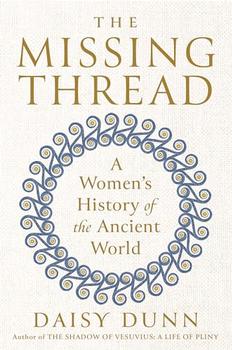
Have you ever seen something that wasn't really there? Heard someone call your name in an empty house? Sensed someone following you and turned around to find nothing?
Hallucinations don't belong wholly to the insane. Much more commonly, they are linked to sensory deprivation, intoxication, illness, or injury. People with migraines may see shimmering arcs of light or tiny, Lilliputian figures of animals and people. People with failing eyesight, paradoxically, may become immersed in a hallucinatory visual world. Hallucinations can be brought on by a simple fever or even the act of waking or falling asleep, when people have visions ranging from luminous blobs of color to beautifully detailed faces or terrifying ogres. Those who are bereaved may receive comforting "visits" from the departed. In some conditions, hallucinations can lead to religious epiphanies or even the feeling of leaving one's own body.
Humans have always sought such life-changing visions, and for thousands of years have used hallucinogenic compounds to achieve them. As a young doctor in California in the 1960s, Oliver Sacks had both a personal and a professional interest in psychedelics. These, along with his early migraine experiences, launched a lifelong investigation into the varieties of hallucinatory experience.
Here, with his usual elegance, curiosity, and compassion, Dr. Sacks weaves together stories of his patients and of his own mind-altering experiences to illuminate what hallucinations tell us about the organization and structure of our brains, how they have influenced every culture's folklore and art, and why the potential for hallucination is present in us all, a vital part of the human condition.
"Starred Review. Effective - largely because Sacks never turns exploitative, instead sketching out each illness with compassion and thoughtful prose. A riveting look inside the human brain and its quirks." – Kirkus
"Fascinating…Writing with his trademark mix of evocative description, probing curiosity, and warm empathy, Sacks once again draws back the curtain on the mind's improbably workings." – Publishers Weekly
"Sacks' best-selling nonfiction stories based on his practice of clinical neurology constitute one shining reason for thinking that we're living in a golden age of medical writing…Sacks defines the best of medical writing." –Booklist
This information about Hallucinations was first featured
in "The BookBrowse Review" - BookBrowse's membership magazine, and in our weekly "Publishing This Week" newsletter. Publication information is for the USA, and (unless stated otherwise) represents the first print edition. The reviews are necessarily limited to those that were available to us ahead of publication. If you are the publisher or author and feel that they do not properly reflect the range of media opinion now available, send us a message with the mainstream reviews that you would like to see added.
Any "Author Information" displayed below reflects the author's biography at the time this particular book was published.
Oliver Sacks, M.D. was a physician, a best-selling author, and a professor of neurology at the NYU School of Medicine.
He is best known for his collections of neurological case histories, including The Man who Mistook his Wife for a Hat(1985), Musicophilia: Tales of Music and the Brain (2007) and The Mind's Eye (2010). Awakenings (1973), his book about a group of patients who had survived the great encephalitis lethargica epidemic of the early twentieth century, inspired the 1990 Academy Award-nominated feature film starring Robert De Niro and Robin Williams. The New York Times has referred to him as "the poet laureate of medicine."
Dr. Sacks was a frequent contributor to the New Yorker and the New York Review of Books, and...




Your guide toexceptional books
BookBrowse seeks out and recommends the best in contemporary fiction and nonfiction—books that not only engage and entertain but also deepen our understanding of ourselves and the world around us.